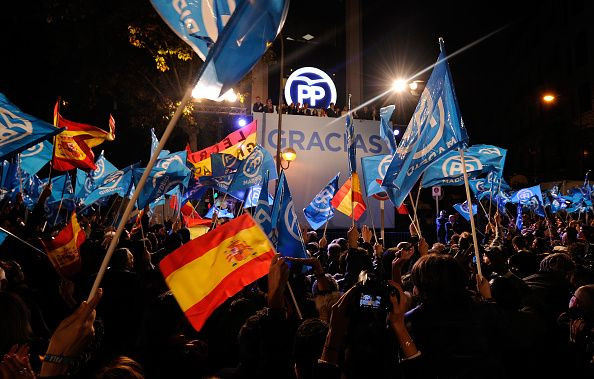Spain’s Voters Oppose Fresh Round Of Elections, Want Coalition Government: Survey

A majority of Spain’s voters want parties to form a coalition government instead of conducting another election to resolve the political stalemate created because of an inconclusive mandate in December, according to a survey Sunday.
According to the monthly opinion poll from Metroscopia published by El Pais newspaper, cited by Reuters, only 33 percent of voters favor a new election while 61 percent prefer to see an agreement between the parties. However, as the ruling centre-right People's Party (PP) was unable to secure a parliamentary majority and its historic rival, the Social Worker's Party (PSOE), lost some of its support to the third-placed leftist newcomer Podemos party, the election’s outcome meant that at least three parties would be needed to form an alliance.
The poll was carried out between Jan. 12 and Jan. 14 among 1,200 people.
December’s result was unprecedented in Spain where either the traditionally dominant PP or the PSOE enjoyed a strong majority over the last 40 years.
Asked if the lack of a clear majority for any party was a good or a bad thing, 61 percent of the people who undertook the survey said they viewed it as positive.
Spain's King Felipe will reportedly meet leaders of the political parties throughout next week in an attempt to help break the political impasse. If no solution is negotiated and a new election took place, results may differ only marginally from the December vote and the deadlock would therefore persist, the survey showed.
Spain’s benchmark stock index lost about 11 percent of its value since the Dec. 20 elections.
"Even if a stable coalition partnership emerges, the negotiations are unlikely to be swift, which implies that both consumers and businesses face a prolonged period of uncertainty," RBC Capital Markets said in a December note to clients, after the elections, the Associated Press reported.
That could hurt business investment "precisely at a time when the Spanish economy is becoming increasingly reliant on domestic demand to fuel the recovery," RBC added.
© Copyright IBTimes 2025. All rights reserved.




















